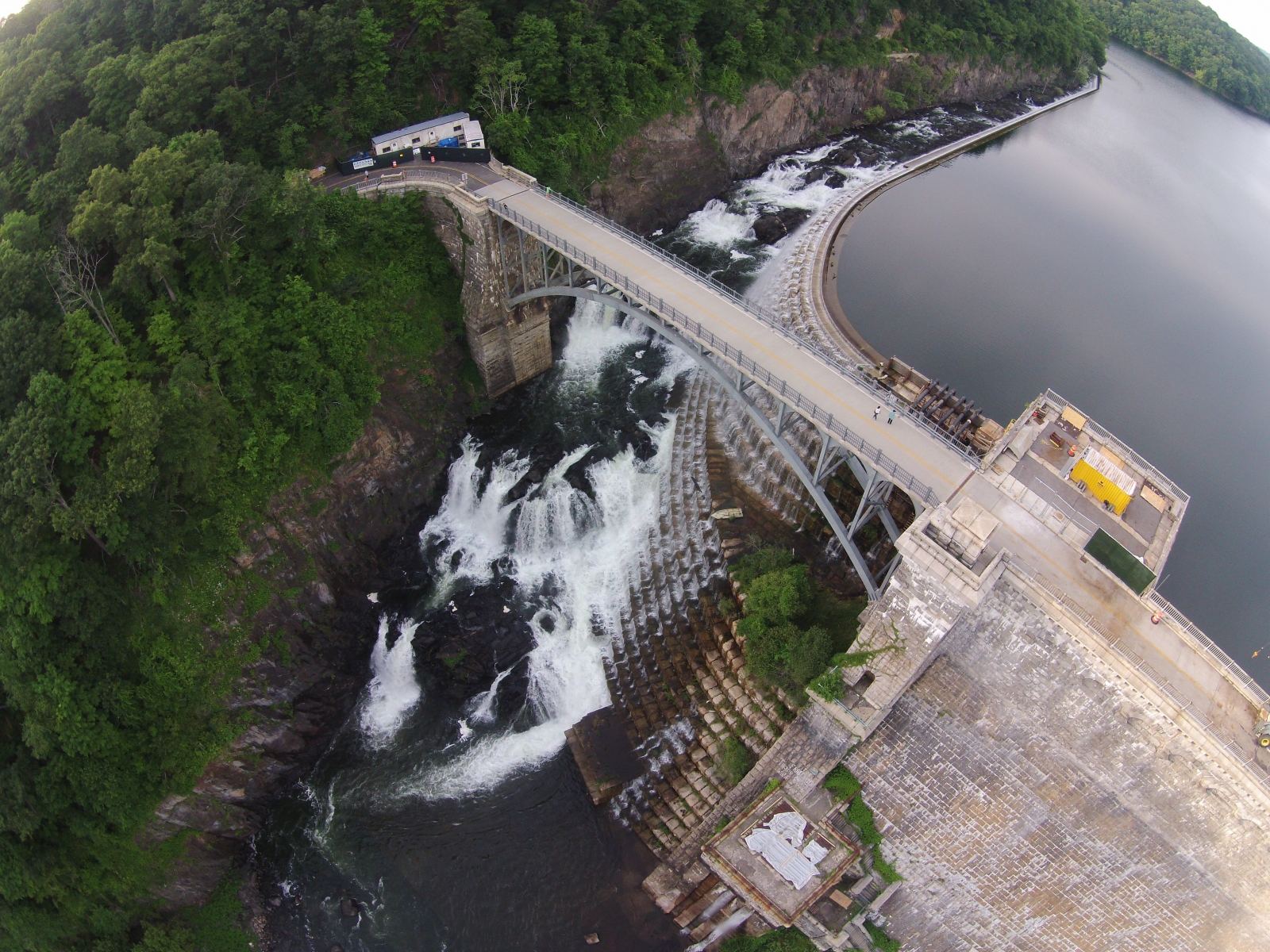
The Croton Reservoir, part of the system that sends water into NYC pipes and faucets. (Getty Images)
Every year, New Yorkers buy about a billion bottles of bottled water. It’s fair to wonder why, since the simple tap water that runs from our faucets is considered to be among the world’s best. (It’s also often free.) Perhaps many New Yorkers don’t know to appreciate their tasty tap water, and the incredible infrastructure that delivers it to their kitchen sink? If you’ve ever wondered where NYC tap water comes from, whether it’s safe — and even why it tastes so good — well, let us explain.
Where Does NYC Tap Water Come From?
The upstate Catskill and Delaware watersheds provide more than 90% of New York City’s water supply, with more than a dozen reservoirs and controlled lakes feeding city pipes. The largest, the Pepacton Reservoir in Delaware County, has a capacity of 140 billion gallons, while the Ashokan Reservoir in Ulster County can hold up to 125 billion gallons. A dedicated police force works tirelessly to prevent illegal dumping in the reservoirs and protects the conduits that bring the water to the city. Water is borne to the city via the New Croton, Delaware and Catskill Aqueducts, and stored in the Kensico and Hillview reservoirs in Westchester County. It flows into the five boroughs via Water Tunnels 1 and 2, completed in 1917 and 1935; a third water tunnel has been under construction since 1970.
A worker walks through Water Tunnel 3, which has been under construction since 1970 and is expected to be completed in 2020. (Spencer Platt/Getty Images)
New York is one of five major U.S. cities that is not required to filter its water, though its water is disinfected by ultraviolet light exposure. That is not to say that New York’s water is untested: it is monitored closely, with 600,000 annual tests for 250 variables, including pollutants. It is this monitoring apparatus, costing nearly $2 billion annually, that has prevented the city from having to lay out even more than that in filtration costs, as waivers from the federal government and state have prevented that necessity.
Manhattan 1BRs Under $3200 Article continues below
Is NYC Tap Water Safe? Can You Drink It?
New York City has committed $1 billion in a new initiative to make its drinking water as safe and clean as possible, with the added benefit of good taste. Some $200 million of the investment will go to the maintenance of wastewater treatment programs; funding will also be provided to help reduce farm pollution, protect upstate areas from overdevelopment, and replace harmful septic systems.
Restaurants and bars serve tap water for free as a rule. The city has begun to set up a widespread water fountain and bottle refilling station program (in addition to the water fountains in city parks) that is currently confined to Brooklyn. But the city expects a full rollout, with 500 such stations by 2025.
For those unsure about the quality of New York City tap water, home water filters are available. Meanwhile, there are portable water bottles, many designed to keep water cold as long as possible. Perhaps soon it may not be necessary to buy bottled water at all — a great thing for a megacity with lots of trash already, and some of the world’s best tap water.
Kevin Walsh is the webmaster of the award-winning website Forgotten NY, and the author of the books Forgotten New York (HarperCollins, 2006) and also, with the Greater Astoria Historical Society, Forgotten Queens (Arcadia, 2013)
—
Get that tasty NYC tap water delivered right into your home: Find a place to rent or to buy in NYC on StreetEasy.